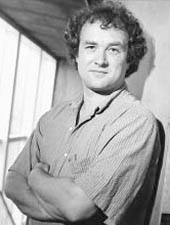Stover, D. R., Charbonneau, H., Tonks, N. K., Walsh, K. A. (September 1991) Protein-tyrosine-phosphatase CD45 is phosphorylated transiently on tyrosine upon activation of Jurkat T cells. Proceedings of the National Academy of Sciences of the United States of America, 88 (17). pp. 7704-7707. ISSN 0027-8424
Preview |
PDF
Tonks_PNAS_1991protein-.pdf - Published Version Download (1MB) | Preview |
Abstract
The leukocyte common antigen (CD45) is an abundant lymphocyte surface antigen that has been reported to be involved in signaling through the T-cell antigen receptor. CD45 is a transmembrane protein-tyrosine-phosphatase. An internal segment comprises two domains each of which is homologous to other protein-tyrosine-phosphatases; the extracellular segment has the hallmarks of a ligand-binding motif. Since tyrosine phosphorylation is an early signal resulting from stimulation of the T-cell antigen receptor and CD45 is required for proper activation through the receptor, we explored whether CD45 might be regulated by tyrosine phosphorylation. Treatment of a T-cell leukemia line (Jurkat) with either phytohemagglutinin or anti-CD3 antibodies induced phosphorylation of tyrosine residues in CD45; treatment with phorbol 12-myristate 13-acetate did not. Phosphorylation of CD45 was transient, disappearing within 40 min after phytohemagglutinin treatment. The requirement for stringent conditions of phosphatase inhibition suggests that CD45 is capable of autodephosphorylation in vivo. These observations support recent reports indicating CD45 is involved in an early step in the T-cell activation cascade. They also suggest that phosphorylation/dephosphorylation of tyrosine residues in CD45 should be explored further as a possible regulatory mechanism.
Actions (login required)
 |
Administrator's edit/view item |
